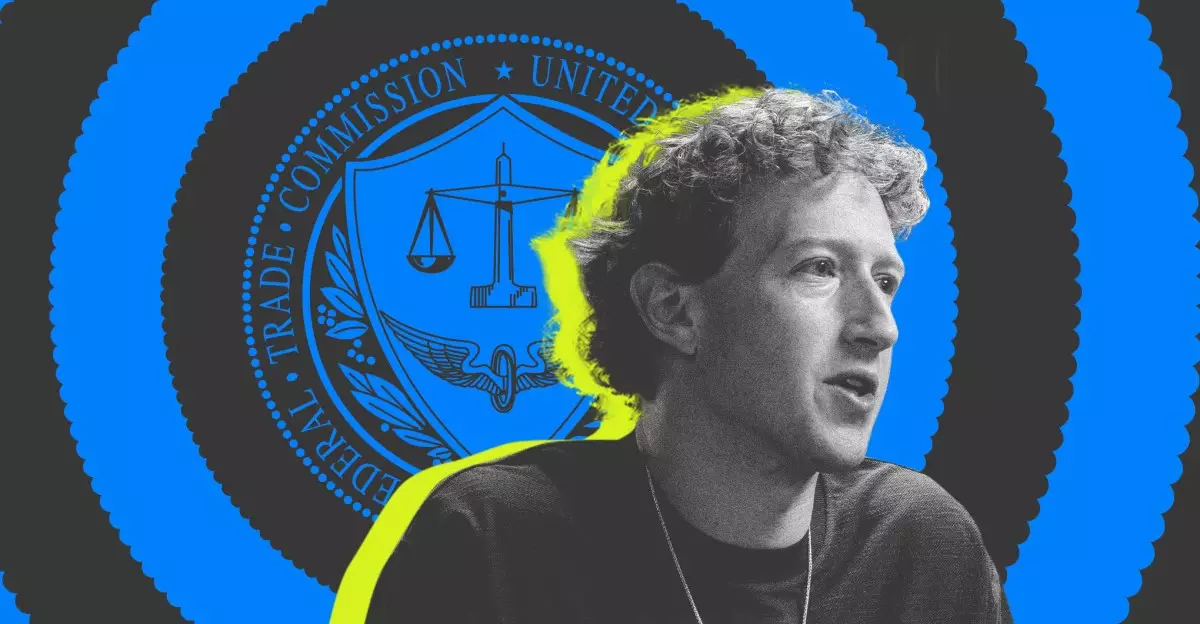Meta, once merely a fledgling platform with ambitions to connect individuals globally, stands as a towering giant in the social media sphere. Its evolution is marked by pivotal decisions and strategic acquisitions that could have taken the company down alternate paths. Mark Zuckerberg, the CEO, recently stepped into the spotlight during a federal antitrust trial in Washington, DC, shedding light on numerous decisions that could have altered the landscape of both Meta and its competitors profoundly. From the potential separation of Instagram to whimsical ideas of eliminating Facebook friends altogether, Zuckerberg’s testimony opens up a fascinating window into the possibilities that lay before the tech titan.
Zuckerberg’s musings on the court stand reveal a labyrinth of thoughts, both pragmatic and creative, that were considered during the company’s trajectory. For instance, the decision not to acquire Snapchat, despite an enticing bid of $6 billion in 2013, marked a significant turning point in Meta’s journey. Had the deal gone through, the evolution of both Snap and Meta might have taken a drastically different form, reshaping how social media interfaces are understood today. Imagine the diverse functionalities and cultural relevance Snapchat could have achieved under Meta’s vast operational machinery as opposed to operating independently.
Truth and Complexity in Market Dynamics
One of the core arguments in the ongoing antitrust case revolves around the premise that Meta engaged in market manipulation by acquiring budding competitors like Instagram and WhatsApp during the early 2010s. The Federal Trade Commission (FTC) posits that these acquisitions exemplify an attempt to maintain monopolistic stature in the personal social networking services domain. Zuckerberg’s responses during the trial indicate a deft maneuvering through a complex maze of market definitions, fluidity, and competition dynamics. He characterized his perception of the market as “fluid,” emphasizing the unpredictable nature of competition, most notably positioning TikTok, YouTube, and iMessage as current rivals rather than the conventional social networking apps.
The FTC’s approach attempts to solidify a narrow definition of the market to support their claims, while Zuckerberg firmly pushes back, suggesting that Meta’s ecosystem doesn’t conform neatly to such categorizations. In doing so, he illustrates the ever-changing dynamics of digital services where user behavior and technological innovations consistently create new competitive landscapes. Essentially, he argues for a broad, more inclusive interpretation of how social platforms function and compete.
Wiping the Slate Clean: A Fresh Perspective or a Miscalculation?
One of the most fascinating thoughts offered by Zuckerberg during his testimony was the whimsical notion of wiping Facebook users’ friends lists—a concept aimed at rekindling the joy of fresh connections. This idea, at a glance, sounds wild and impractical; yet, it reflects a deeper understanding of user engagement and the cyclical nature of trends in social media. While Zuckerberg sought a way to refresh the platform, such a move could have alienated users accustomed to their established networks and the sense of belonging that comes with them.
It encapsulates a broader question about the future of social media: should platforms continually evolve to chase engagement metrics, or should they prioritize cultivating authentic user experiences and connections? Zuckerberg’s pondering showcases the dilemma of innovation versus stability—a recurring theme in the tech industry. It raises valid discussions on how the pursuit of new engagements, sometimes at the cost of existing relationships, can lead to unintended consequences.
The Future of Advertising and User Engagement
Furthermore, Zuckerberg’s courtroom discussions illuminated another possibility once explored by Meta—the idea of creating a feed filled solely with advertisements. This concept, if ever implemented, poses intriguing implications about user acceptance and engagement. Would Meta users endure a relentless stream of ads, believing them to be as valuable as organic content? The sheer audacity of this thought highlights the balance that social media companies must strike between monetization and user satisfaction.
Zuckerberg’s testimony not only captured the nostalgia of how decisions are made at Meta but also provided an insight into the future of advertising in the rapidly evolving social space. The possibility of changing users’ perceptions about ads, blending them seamlessly with user-generated content, speaks to the constant tug-of-war between profit motives and user trust.
Echoes of the Past Shaping the Present and Future
As Zuckerberg defended his past decisions regarding acquisitions and product strategies, the courtroom discussion becomes more than a mere testimony. It reflects an era of fierce competition and rapid evolution in technology, where strategic decisions were often guided by the prospect of retaining dominance. The combination of fear, ambition, and uncertainty dictated the formation of the meta-ecosystem that is prevalent today. The internal dialogues and fears that plagued Zuckerberg—fears of falling behind, of losing touch with the user experience—resonate with the common anxieties of business leaders navigating through the volatile waters of innovation.
The unfolding narrative of Meta offers a glimpse into the multifaceted world of social media and digital interactions. It challenges us to reconsider the impacts of past decisions on today’s platforms and poses important questions for the tech landscape’s future. Each choice carries the weight of potentially monumental consequences, not solely for the companies involved, but for the millions of users whose lives are interwoven with their platforms.


Leave a Reply